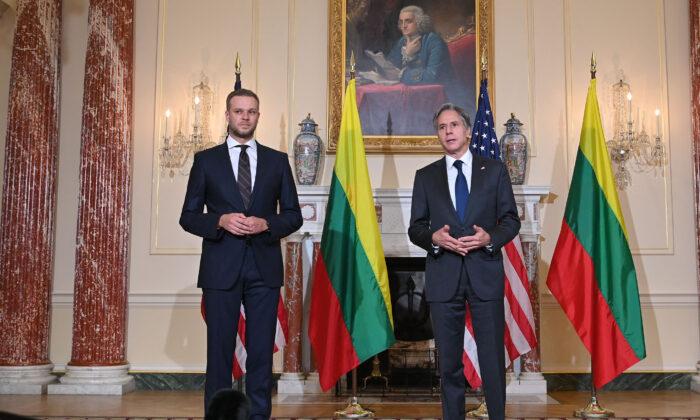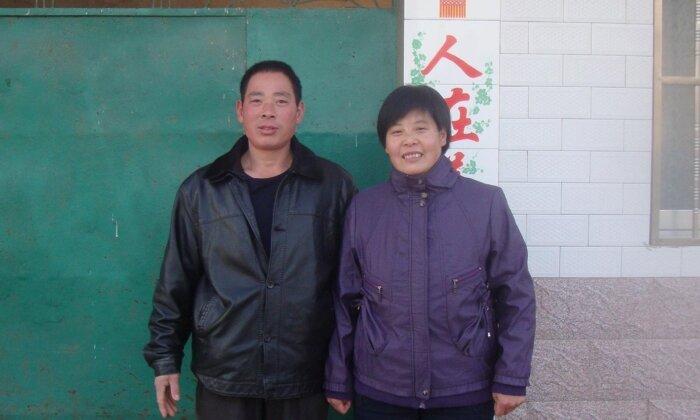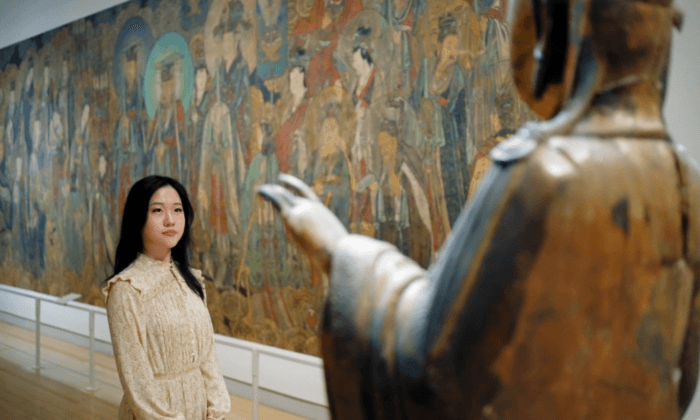The United States reiterated its “ironclad support” to Lithuania on Sept. 15, as the Baltic nation resists coercion from Beijing due to its deepening relations with Taiwan.
During the meeting, the United States expressed solidarity with Lithuania, its NATO ally and EU partner, as it encounters “geopolitical challenges” that imperil “regional stability, security, and economic prosperity”, according to a U.S. government press release.
The release also declared the United States’ “ironclad support” for the Baltic nation while it confronts attempted coercion from the Chinese regime.
Moreover, Blinken and Landsbergis discussed ways to counter the Chinese Communist Party’s economic intimidation, talking over “efforts to assist Lithuania build supply chain resiliency and expand bilateral economic cooperation.”
The two leaders further echoed their pledge to strengthen U.S.-EU cooperation, to progress towards peace, prosperity, security, democracy, and human rights.
“It’s truly symbolic that we can reaffirm our commitment to defend democracy, liberty, human rights across the globe,” Landsbergis said.
The United States’ renewed support for its NATO ally comes after Lithuania agreed to allow Taiwan to open a representative office under its own name in July, rather than “Chinese Taipei.”
The Chinese Communist Party (CCP) regards Taiwan as part of its territory, despite the island nation having its own system of government, military, and currency.
This led to Lithuania recalling its ambassador from Beijing for consultations from Beijing.
Given Lithuania’s resistance, the CCP is attempting to hurt the nation’s economy.
Targetting Taiwan
Due to the CCP’s endeavors to exclude Taiwan from the international relations landscape, the self-ruled island has only 15 diplomatic allies.However, it has managed to develop informal ties with many nations by establishing representative offices, which serve as de facto embassies, though they do not award Taiwan diplomatic recognition. This is the case of the United States and Lithuania.
As a result, The Global Times targeted Taiwan with an aggressive editorial, which threatened to impose an “economic blockade” against Taiwan, as well as taking military action against the island.
But many experts see such talk, at this stage, as hot air.
“In order to be successful economically, the Chinese regime can’t be seen as an ogre; they have to be patient, as the ogre can come later,” he said.
Nonetheless, he said, “there is still a high enough risk for [military action] to merit considerable attention and concern for the future.”






Friends Read Free